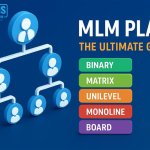Rich Dad Poor Dad” by Robert Kiyosaki is a bestselling personal finance book that contrasts the financial philosophies of two father figures in the author’s life: his “rich dad” (a family friend and mentor) and his “poor dad” (his biological father).
- The Rich Don’t Work for Money: Kiyosaki emphasizes the importance of financial education and understanding the difference between working for money and making money work for you. Many people are stuck in the “rat race” of working for a paycheck, but the rich focus on building assets that generate passive income, such as investments or businesses.
- Let’s think about our own business: Kiyosaki encouraged others to think like entrepreneurs.. Whether you have a traditional job or not, he advises treating your financial life as if it were a business. This means understanding your cash flow, managing your expenses, and seeking opportunities to increase your income, such as starting a side business or investing wisely.
- Make Money Work for You: This rule ties back to the idea of building assets. Kiyosaki emphasizes the importance of saving and investing your money wisely. Instead of simply saving money in a bank account, he suggests looking for opportunities to invest in income-generating assets like real estate, stocks, or businesses.
- The History of Taxes and the Power of Corporations: Kiyosaki discusses the role of taxes in wealth accumulation and advocates for understanding and legally minimizing your tax liabilities. He also highlights the advantages of structuring your financial affairs through business entities (corporations) to reduce tax burdens.
- The Rich Invent Money: This rule encourages creativity and entrepreneurship. Kiyosaki argues that the rich are often successful because they find innovative solutions to financial challenges. They seek out opportunities, create value, and take calculated risks to build wealth.
Summary
The book explores key financial lessons and principles, including the importance of financial education, the difference between assets and liabilities, the power of entrepreneurship, the need to take calculated risks, and the pursuit of financial independence. It challenges traditional notions about money and encourages readers to rethink their approach to wealth-building and financial security. “Rich Dad Poor Dad” aims to empower individuals with the knowledge and mindset needed to achieve financial success and independence.










71ff8m
71ff8m